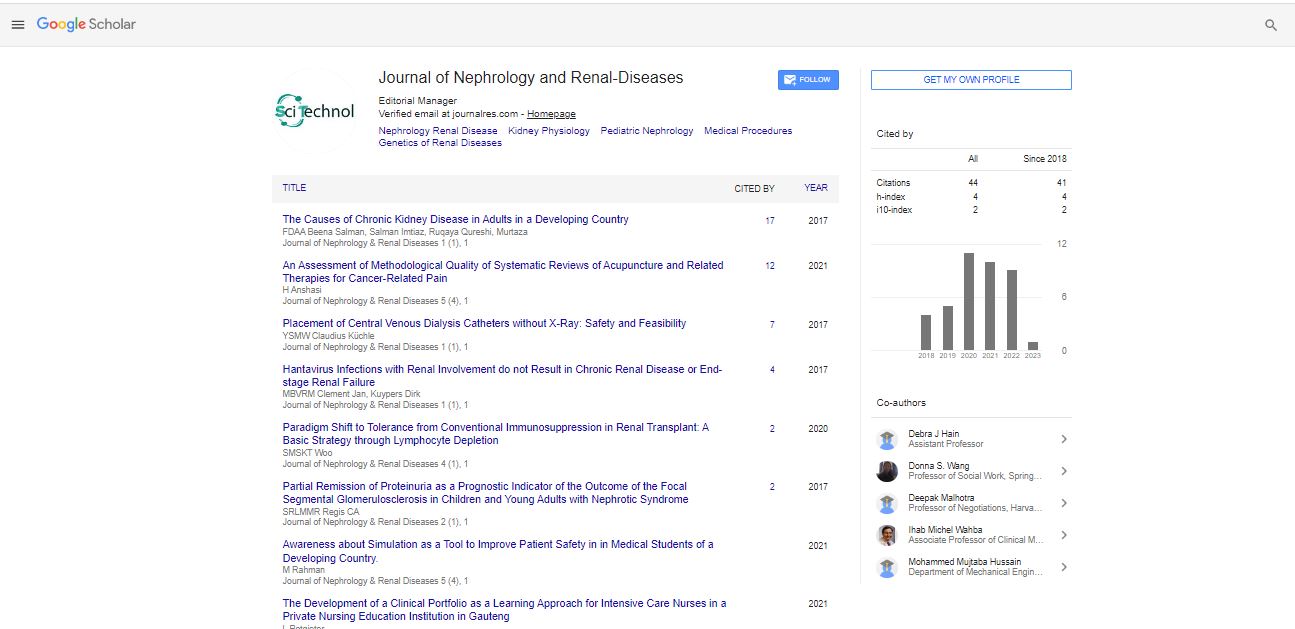Perioperative renal injury: Is fluid management the only determinant?
Baris Cankaya
Marmara University Pendik Training Hospital, Turkey
: J Nephrol Ren Dis
Abstract
Perioperative fluid therapy management is a very difficult process. Perioperative morbidity is associated with the amount of intravenous fluid delivered and consequent postoperative complications. Not only fluid, its component and hemodynamic parameters also play important role. Studies have shown that combining fluid therapy with the goal of hemodynamic stabilization can minimize postoperative complications. Perioperative hypovolemia leads to organ dysfunction, since adaptive mechanisms cause peripheral vasoconstriction to maintain blood flow to the vital organs. Anesthetized patients often present with a functional intravascular volume deficit depending on many factors. Fluid management is a key topic for achieving advanced recovery after surgery. It is important to plan a tailor-cut fluid resuscitation for the patient perioperatively avoiding postoperative complications.
Biography
Baris Canaya is an Anesthesiologist at Marmara University Pendik Training Hospital in Istanbul, Turkey. He has deep interest for resuscitation, acute critical illness, trauma anesthesia, pediatric congenital cardiovascular anesthesia and perioperative patient safety.
 Spanish
Spanish  Chinese
Chinese  Russian
Russian  German
German  French
French  Japanese
Japanese  Portuguese
Portuguese  Hindi
Hindi 
